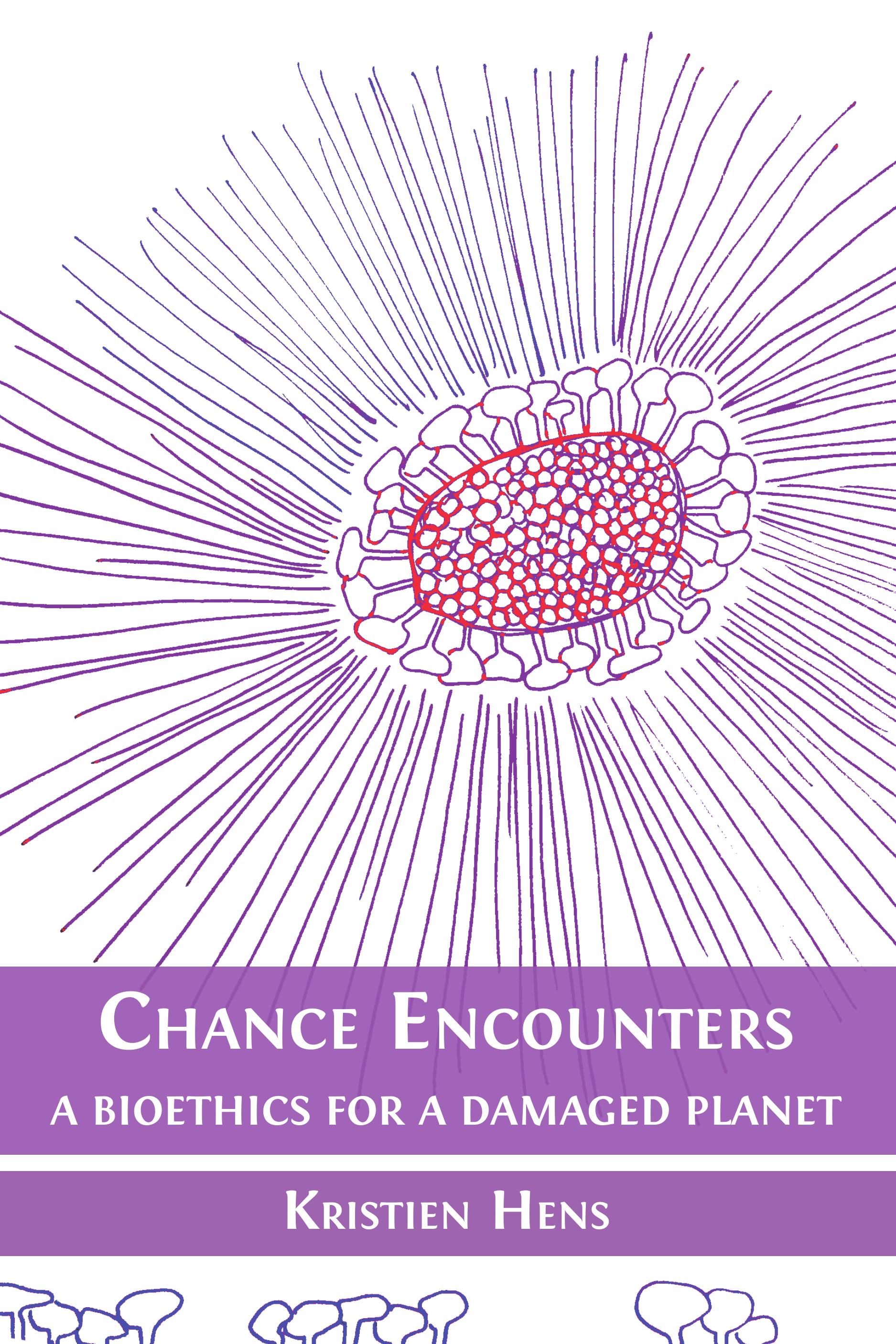 Chance Encounters: a bioethics for a damaged planet
Chance Encounters: a bioethics for a damaged planet
by Kristien Hens
OpenBook Publishers, 2022. ISBN 9781800648517 (pdf)
This book, coming FREE from OpenBook Publishers in pdf format, is full of surprises, not least because it touches on a range of topics far beyond what the title might suggest. In essence, it explores bioethics as a bridge between science and the humanities, and in doing so, it raises profound questions about both.
As the title suggests, the process of living is about finding creative solutions that emerge from the possibilities provided by our 'chance encounters'. We do not have a fixed essence, defined by our genes, but are shaped by our experience. Our identity is therefore inseparable from our living and the process of engaging with the world around us. That much one might have gleaned from the Buddha, but Hens draws in A N Whitehead, process thinking, and Mary Midgley's perception of philosophy as exploring the plumbing our our world, in order to pull together an argument that spans issues from personal identity, ethics and our treatment of the environment.
Thus, for example, the old philosophical dilemma about what would happen in the case of a head transplant is easily dismissed as based on the error of thinking that identity is located exclusively in the brain. We shall never discover that we have a latent 'inner' or 'true' self, because we are constantly re-shaping ourselves through experience.
For me, the most surprising thing about this book is its perception of the scope of bioethics. Hens presents it as the study of our place within the biosphere, along with our responsibility for future generations. It is essentially the ethics of life, and as such it related directly to issues of responsibility in political philosophy and environmental ethics.
Bioethics, thus described, also presents an existential challenge. Hens described the process of living as finding creative solutions to the worlds we want to create, and that each chance encounter provides us with opportunities to do so. Here is the fundamental link between science and ethics - the former, examining the nature of our experience, provides a basis for the opportunities and options that frame our ethics, by setting out the values by which we choose to live and the worlds we choose to create. As existentialism has always claimed, but here based on science, humans are shaped by the process of living. He also argues, against determinism, that the present it not fixed by the past, but the decisions and actions taken in the present are informed by the past. Our future is thus not fixed, but plastic, open to our living experience.
Both philosophers and scientists might also consider the implications of his claim that abstractions (whether in terms of philosophical claims or scientific theories) 'divert our attention from the concrete reality of experiences' (p85) If events are considered only as data to sustain a generalised priciple, the end result is an abstraction that lacks the direct and engaged process of living.
In terms of ethics, there is plenty to contemplate, from eugenics and human improvement, to genetic engineering to produce the transhuman - all seen as a development of enlightenment and humanist views, but deeply flawed. Bioethics 'operates at the intersection of medicine, science and humanism' and thus sees its task as tackling the most immediate of all moral and practical questions 'How do we live well on a damaged planet?'
A paragraph towards the end of the book summarises our situation:
In 2022, we face uncertainties and doom scenarios that pandemics and wars bring. For some people, this means that there is no hope for humanity. However, I believe that as 'ethicists for life', bioethicists can contribute to increasing hope. This means widening the scope of bioethics to engage with and perhaps even include environmental ethics and engaging with diversity and experiences. It means being informed by the past and having to think with the past about possible futures. In dire need, bioethics should be forward-looking and ask what we value, what world can sustain such values, and how we get there.
This, however, does not do justice to what I have most enjoyed in this book, which is the number of hidden gems in the text, such as the perception that individual instances, as opposed to general theories, reveal 'the messy relatedness and contingency of the world.'
For more information about this title, visit its Amazon entry, by using the link below. You may also download the free pdf version by visiting the publisher's website - just click here. [ad]
